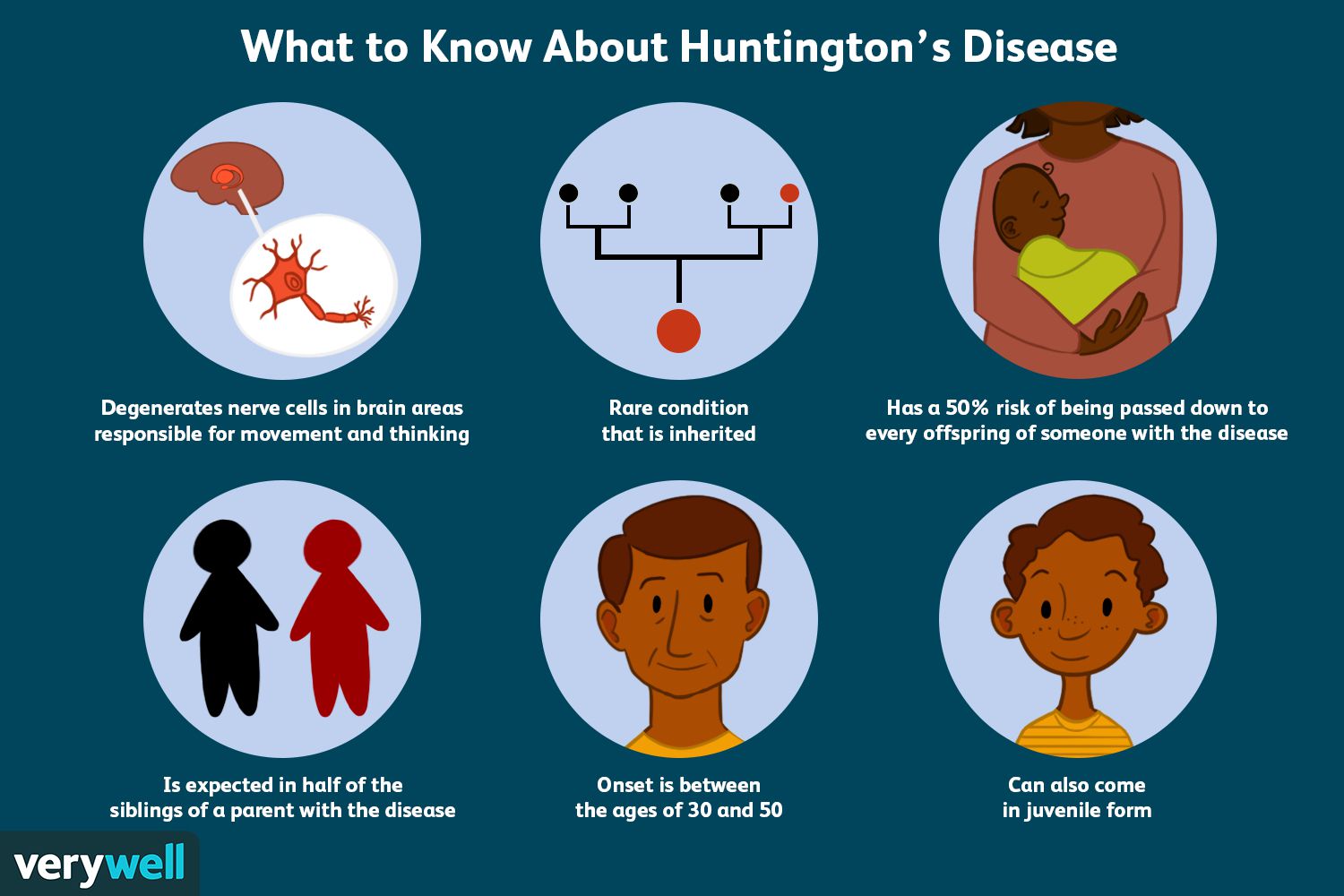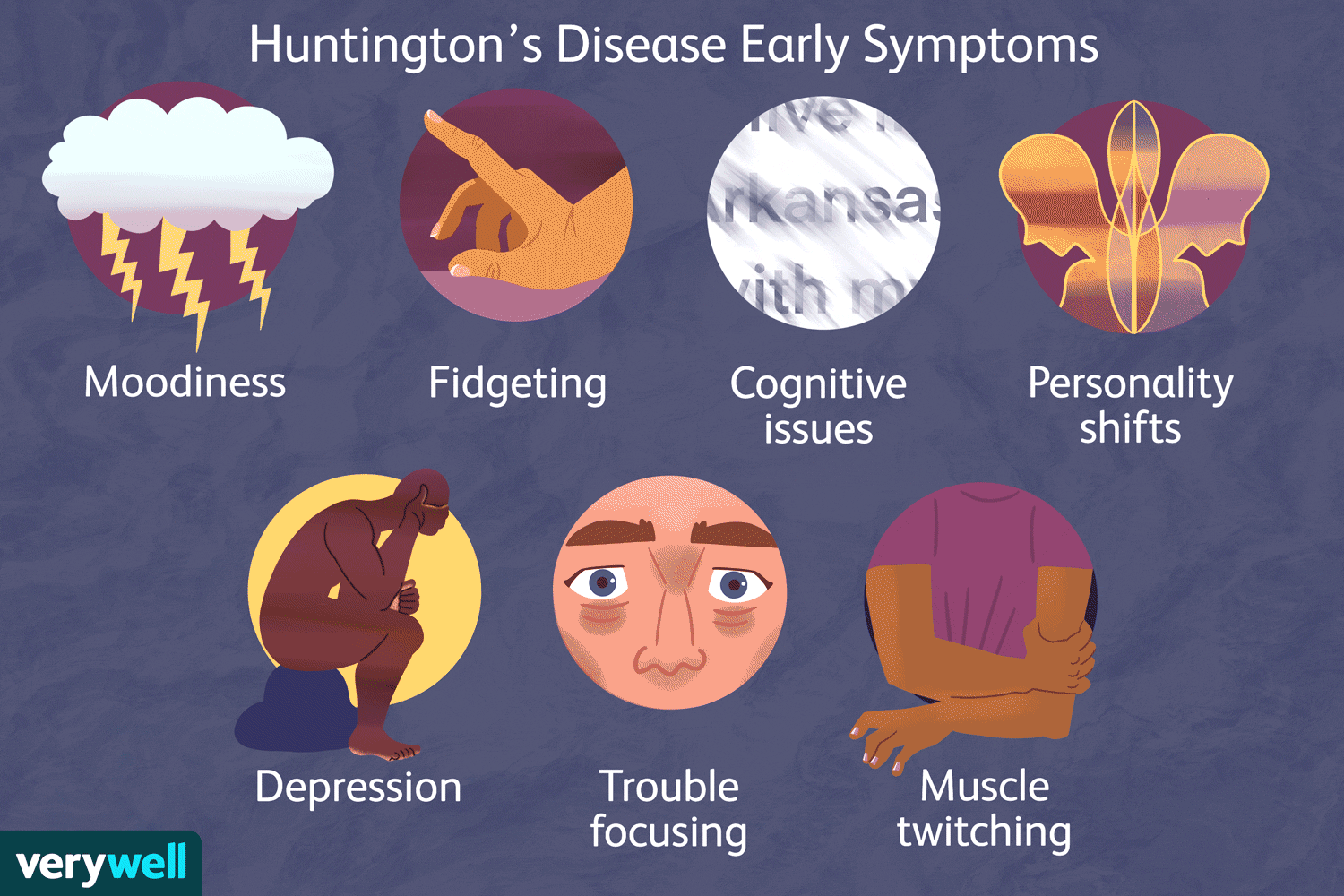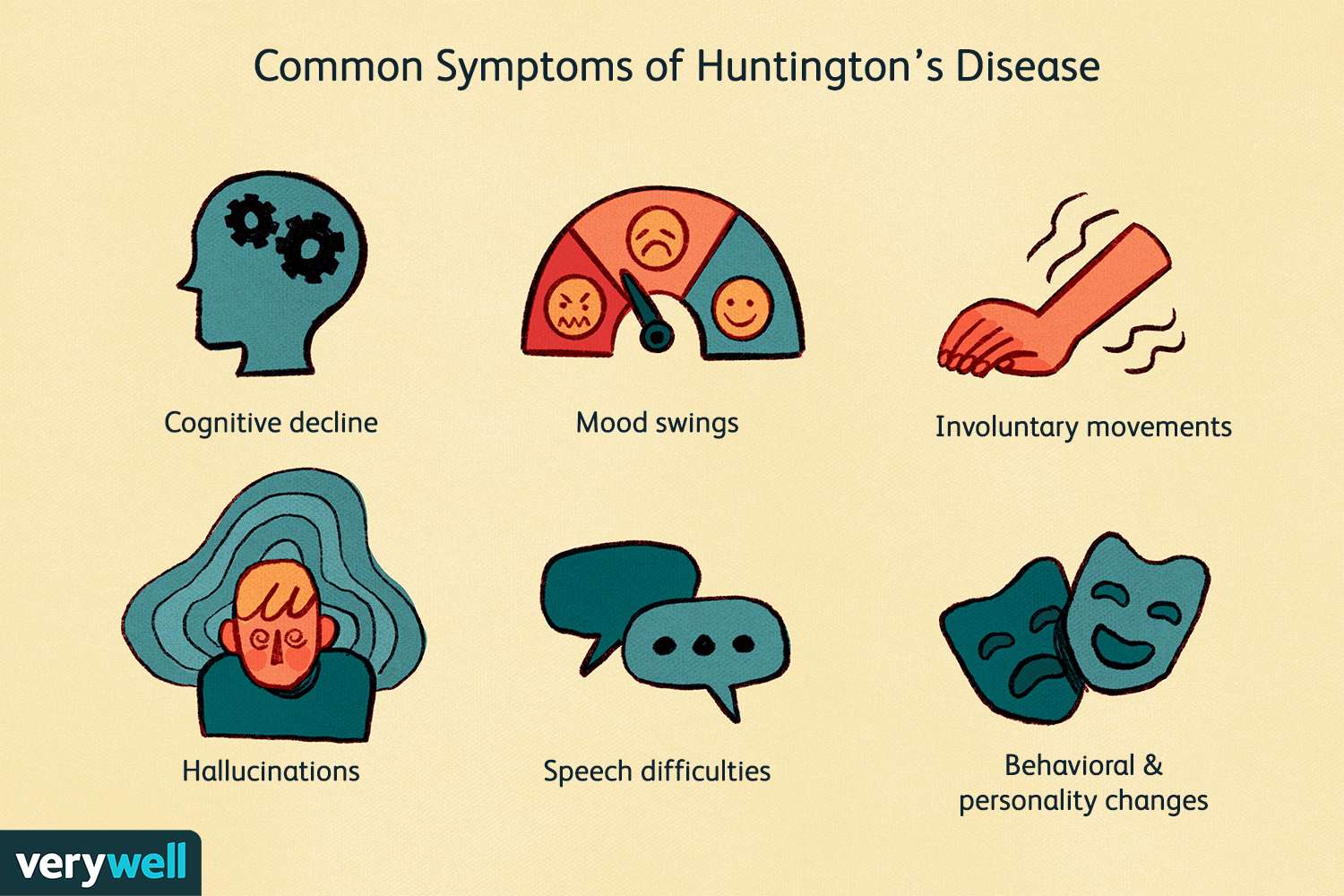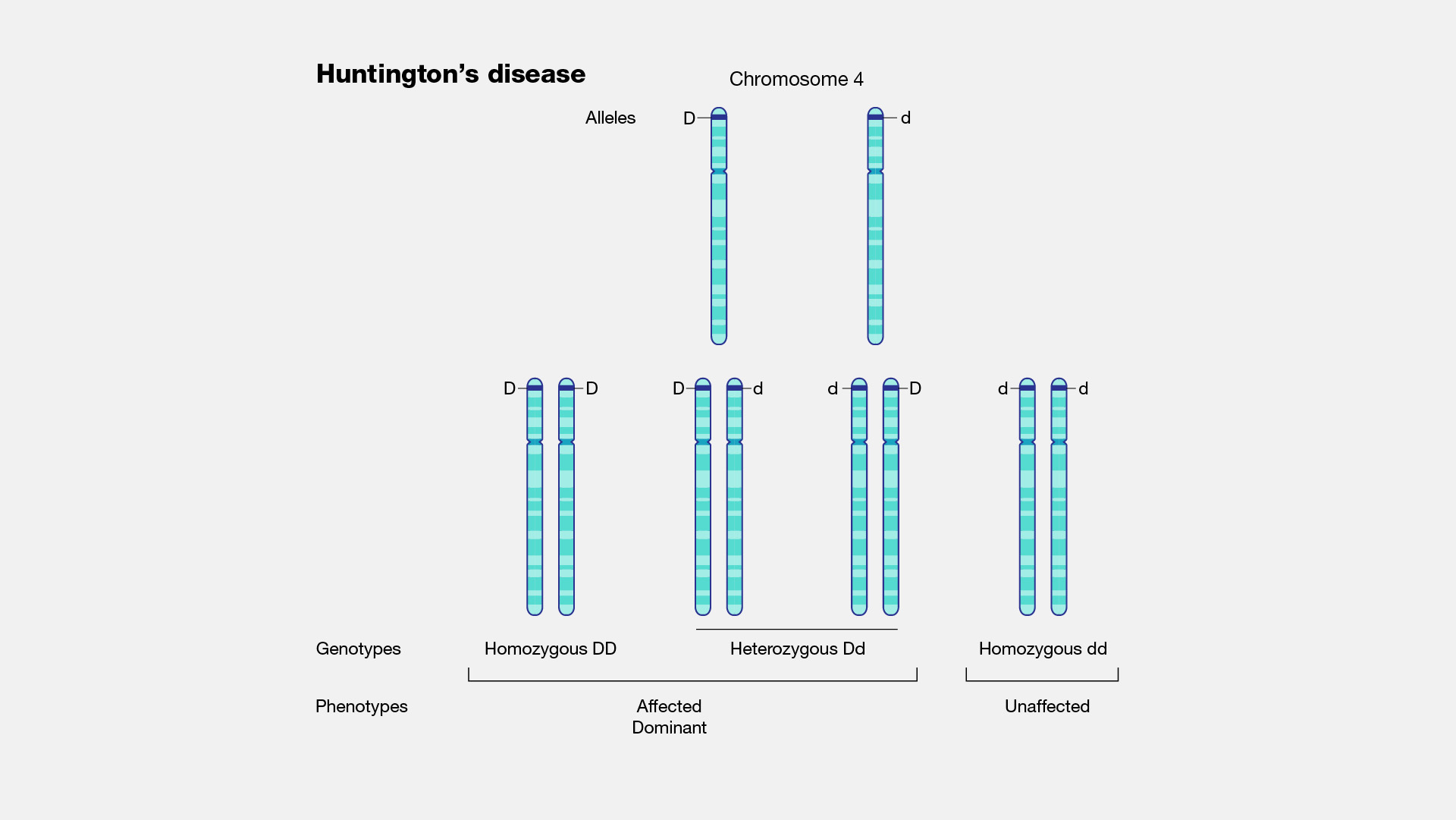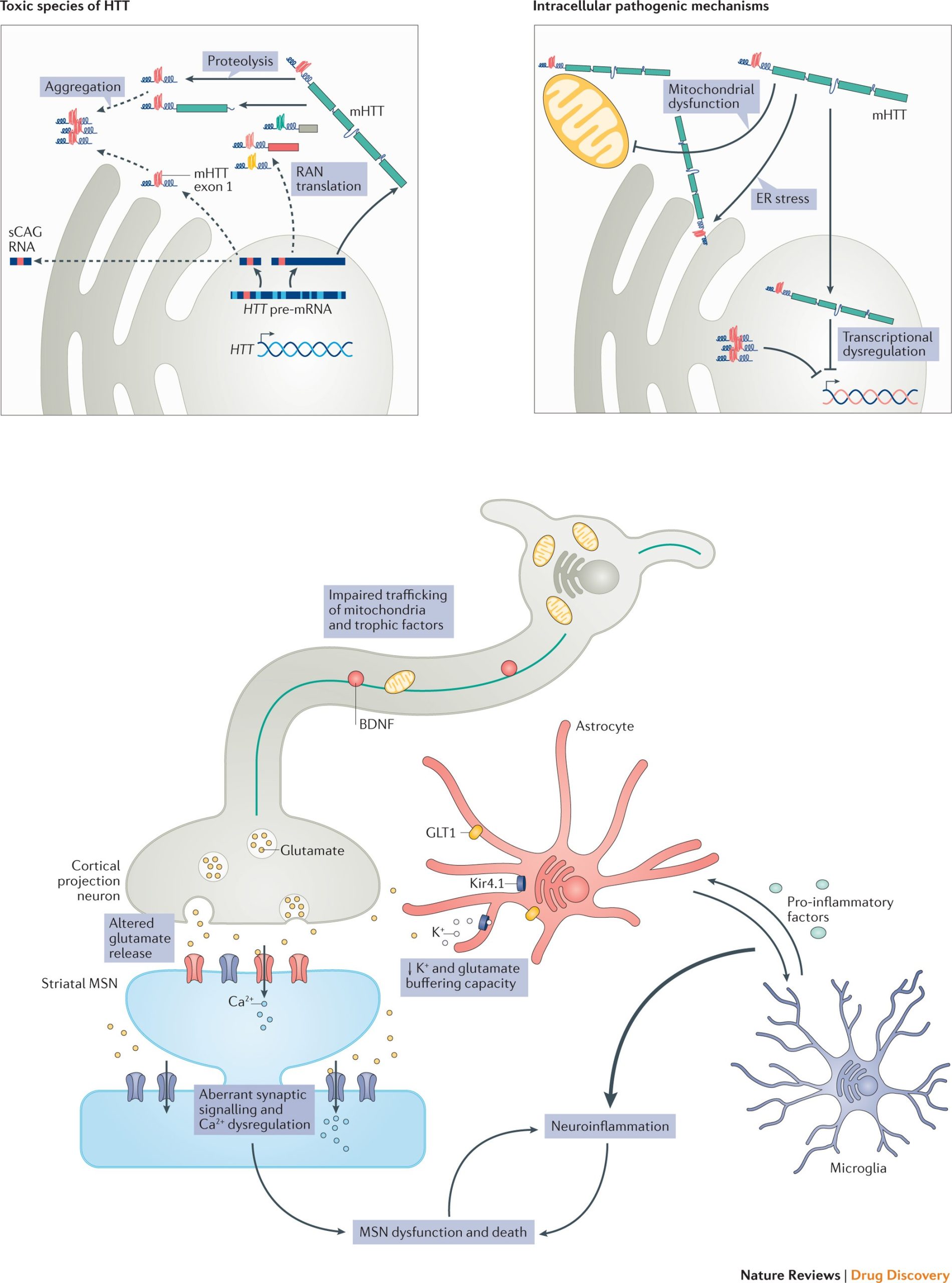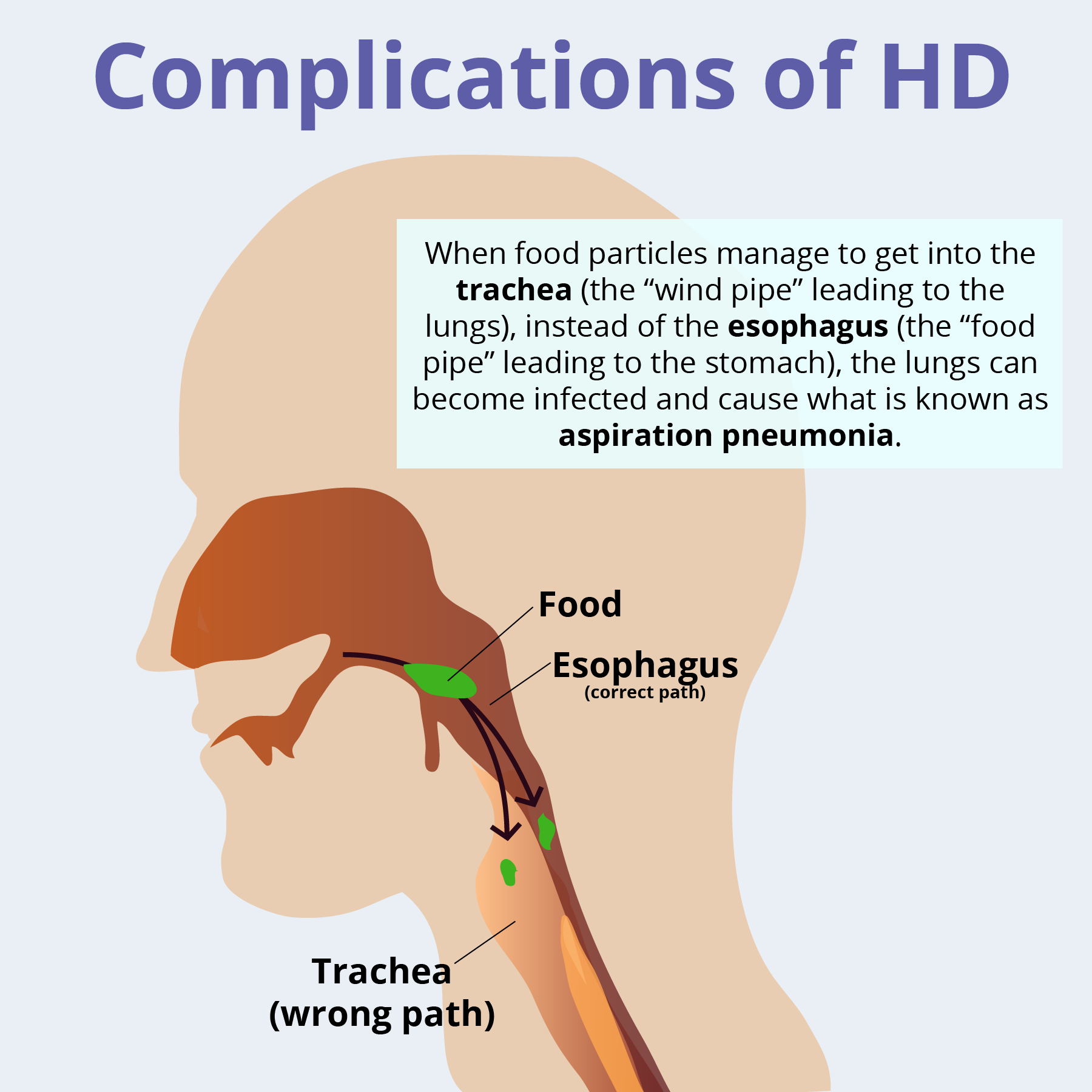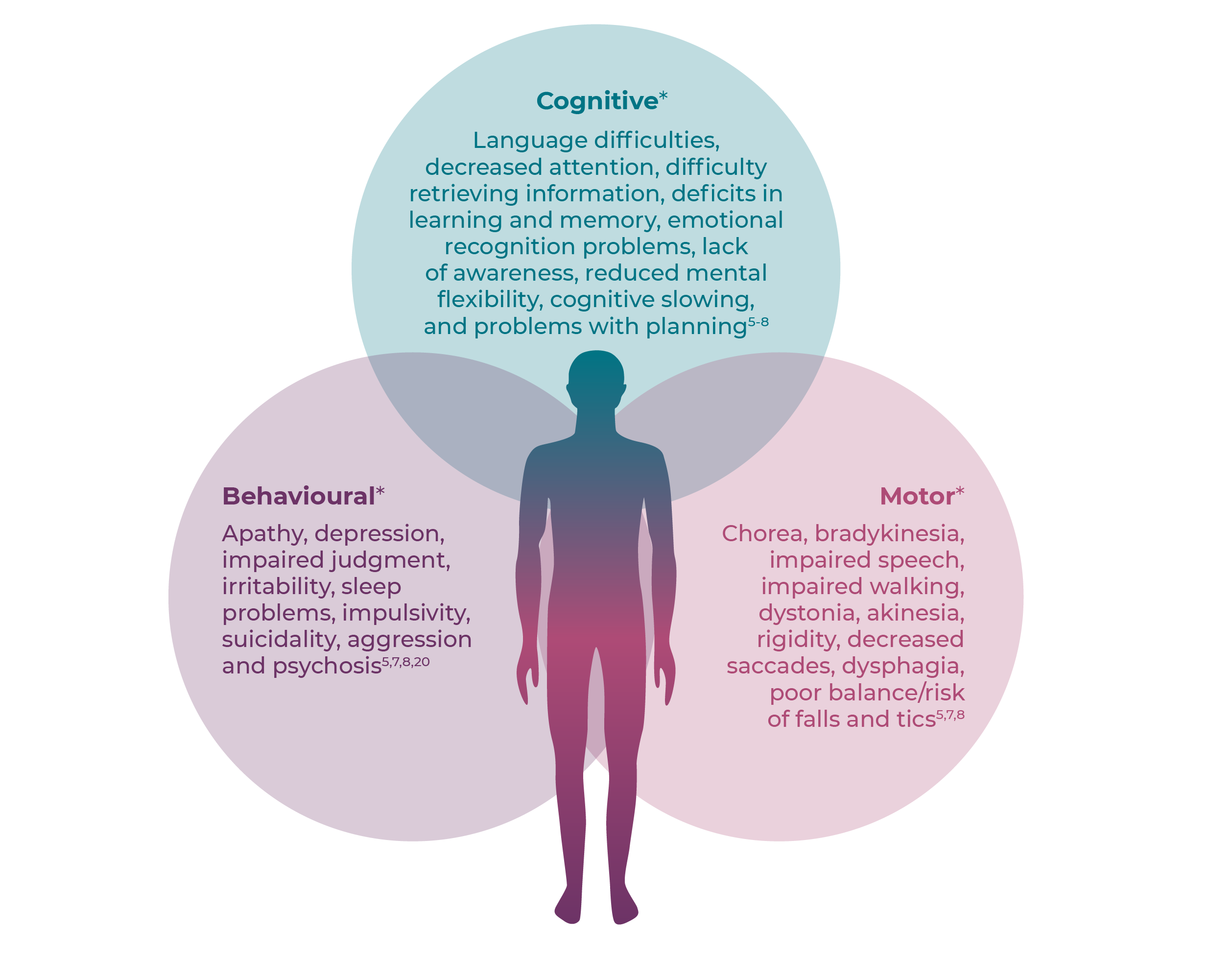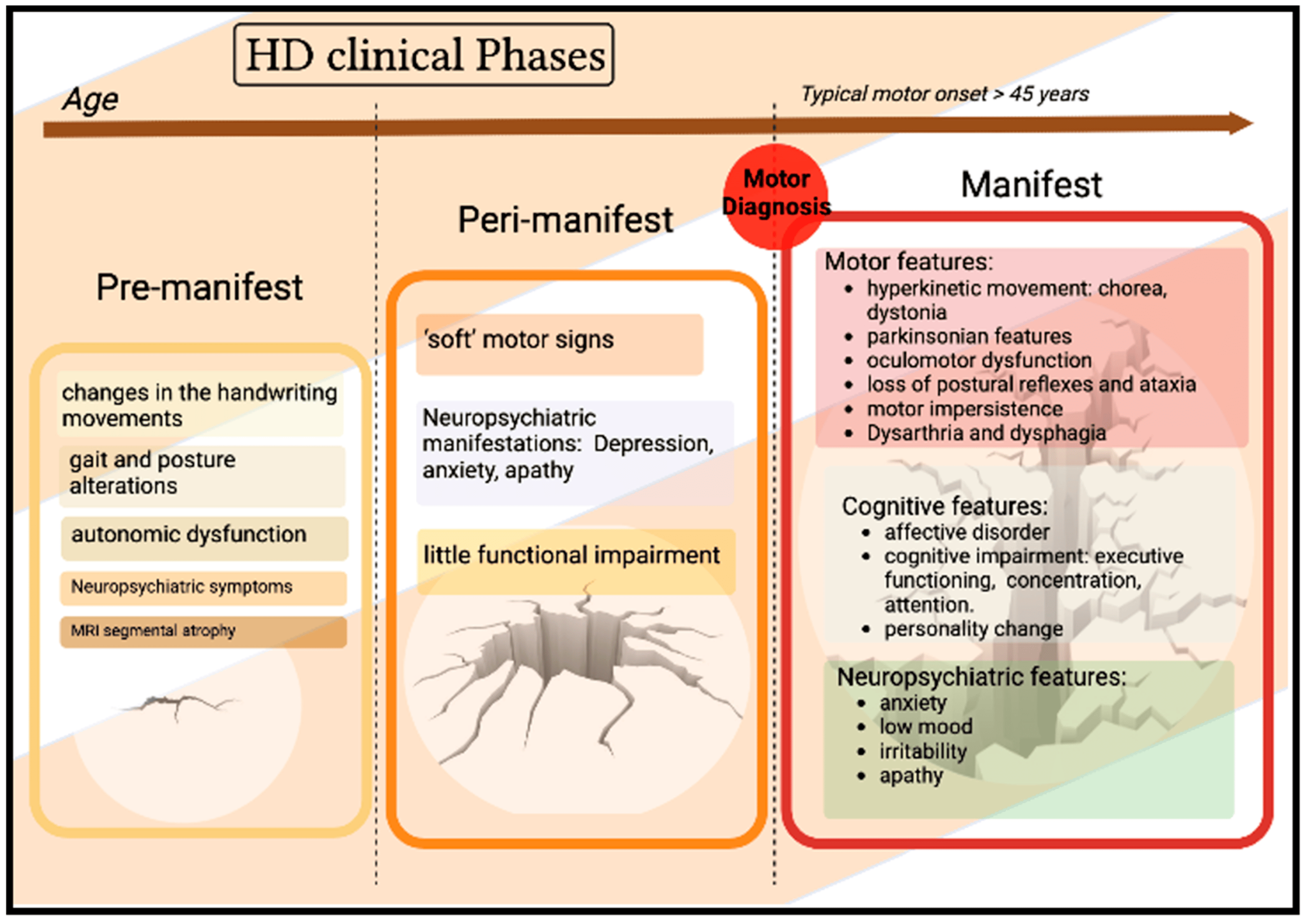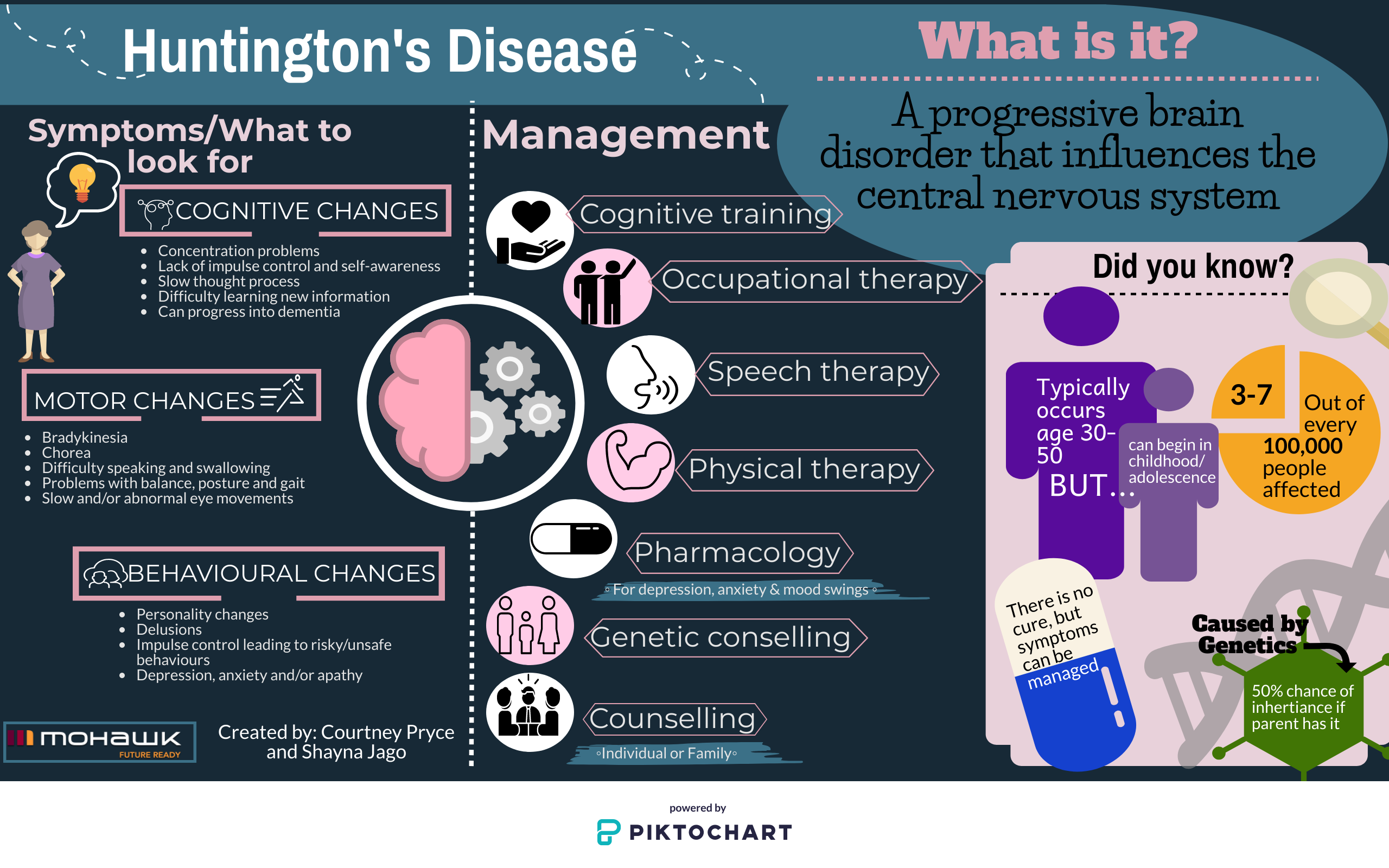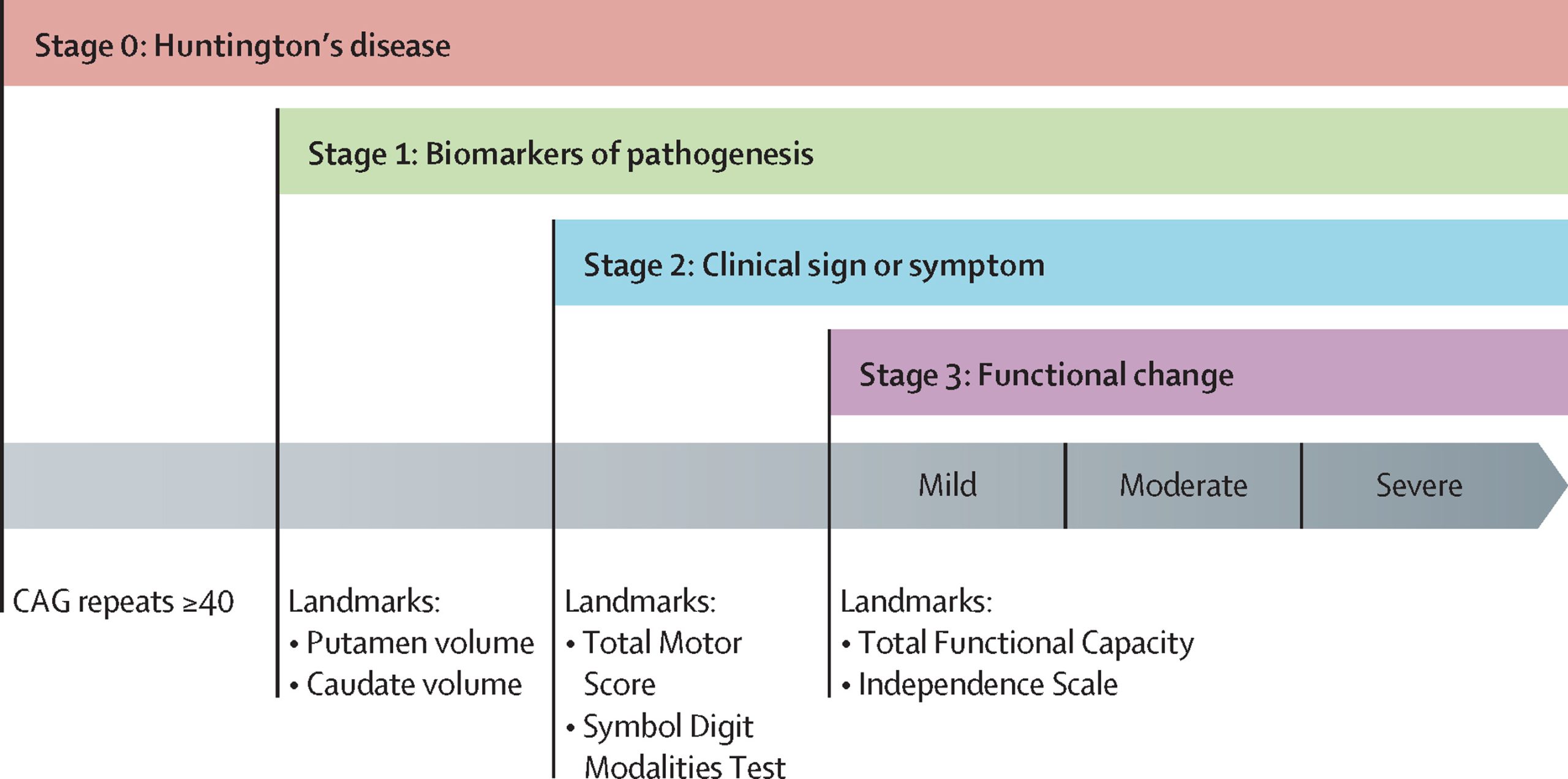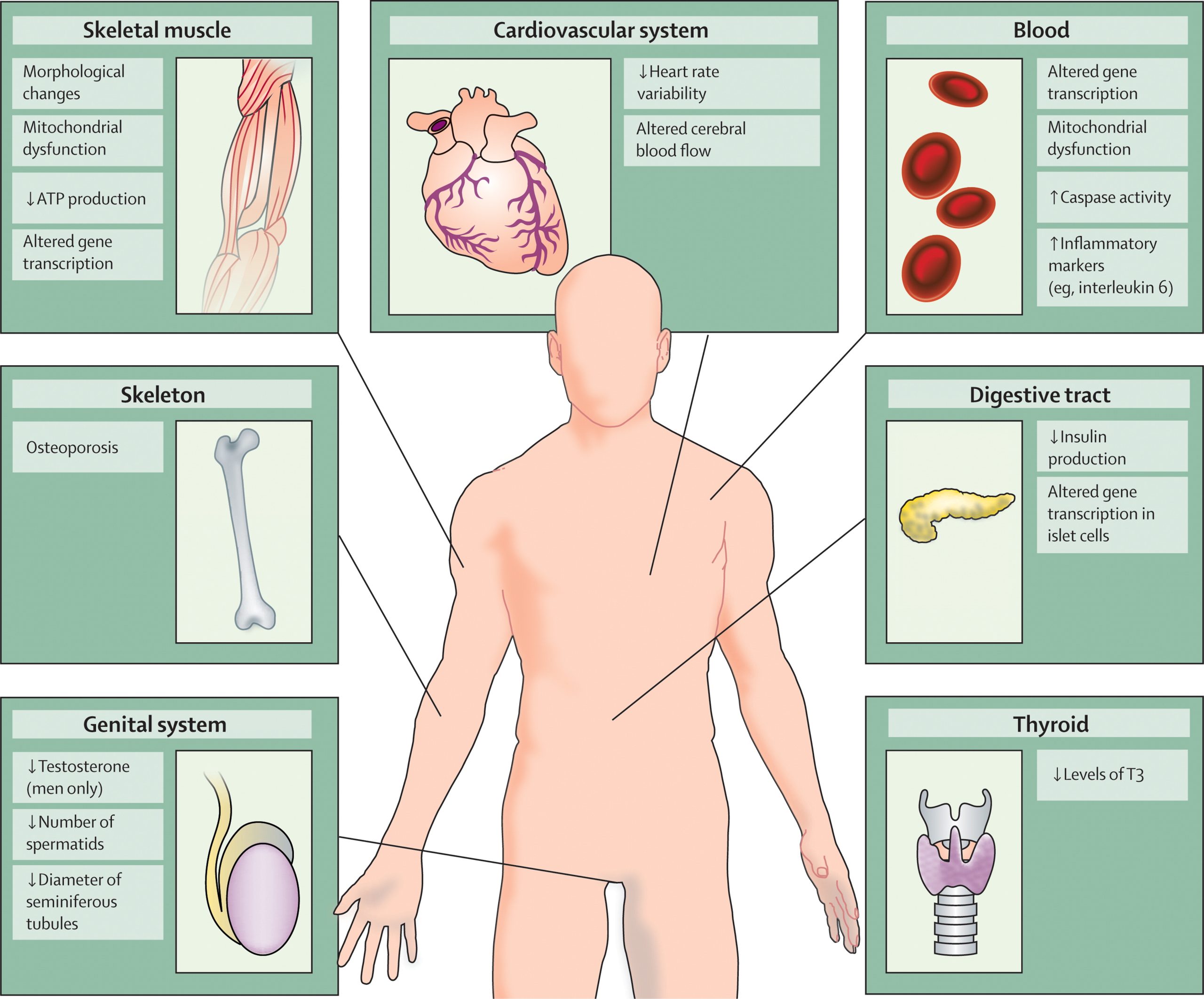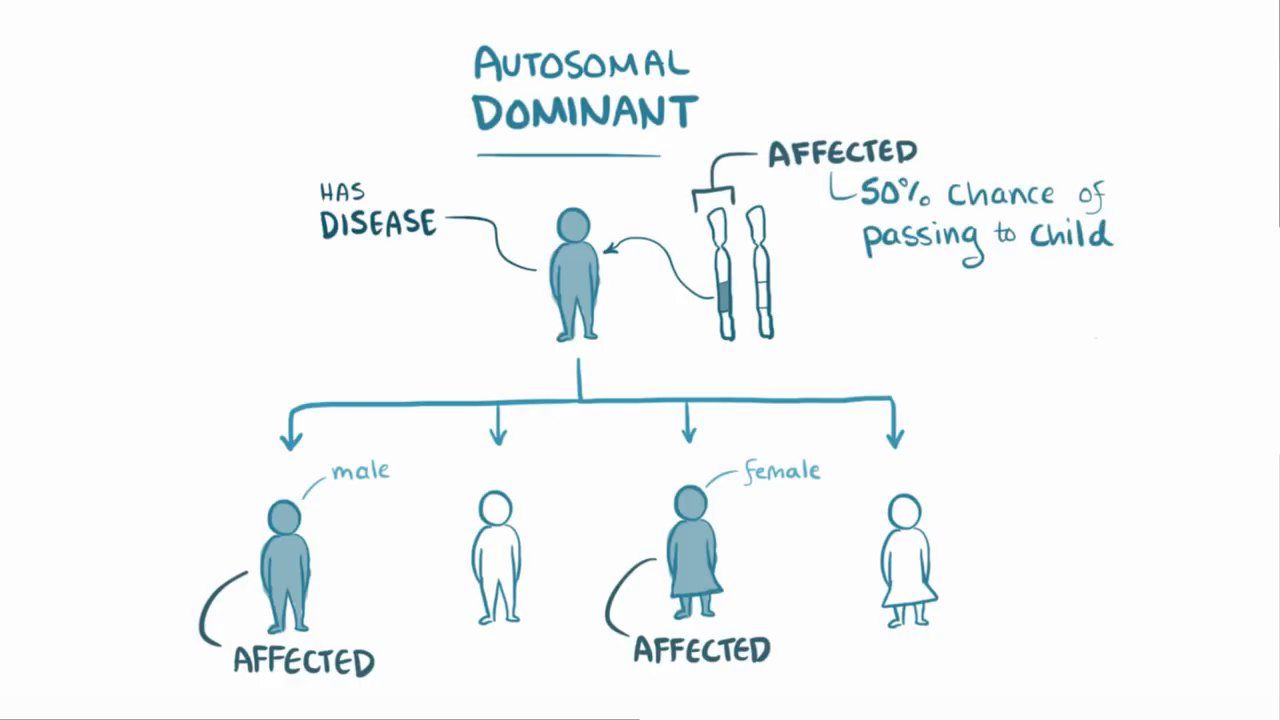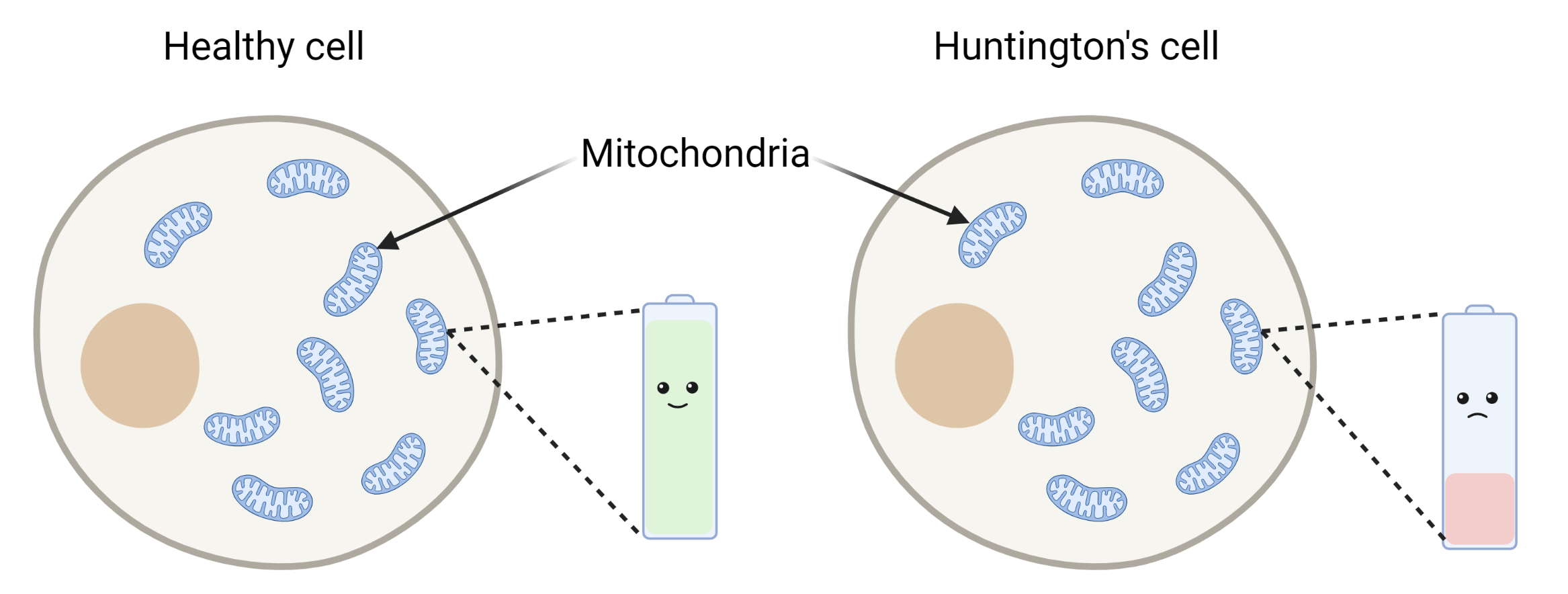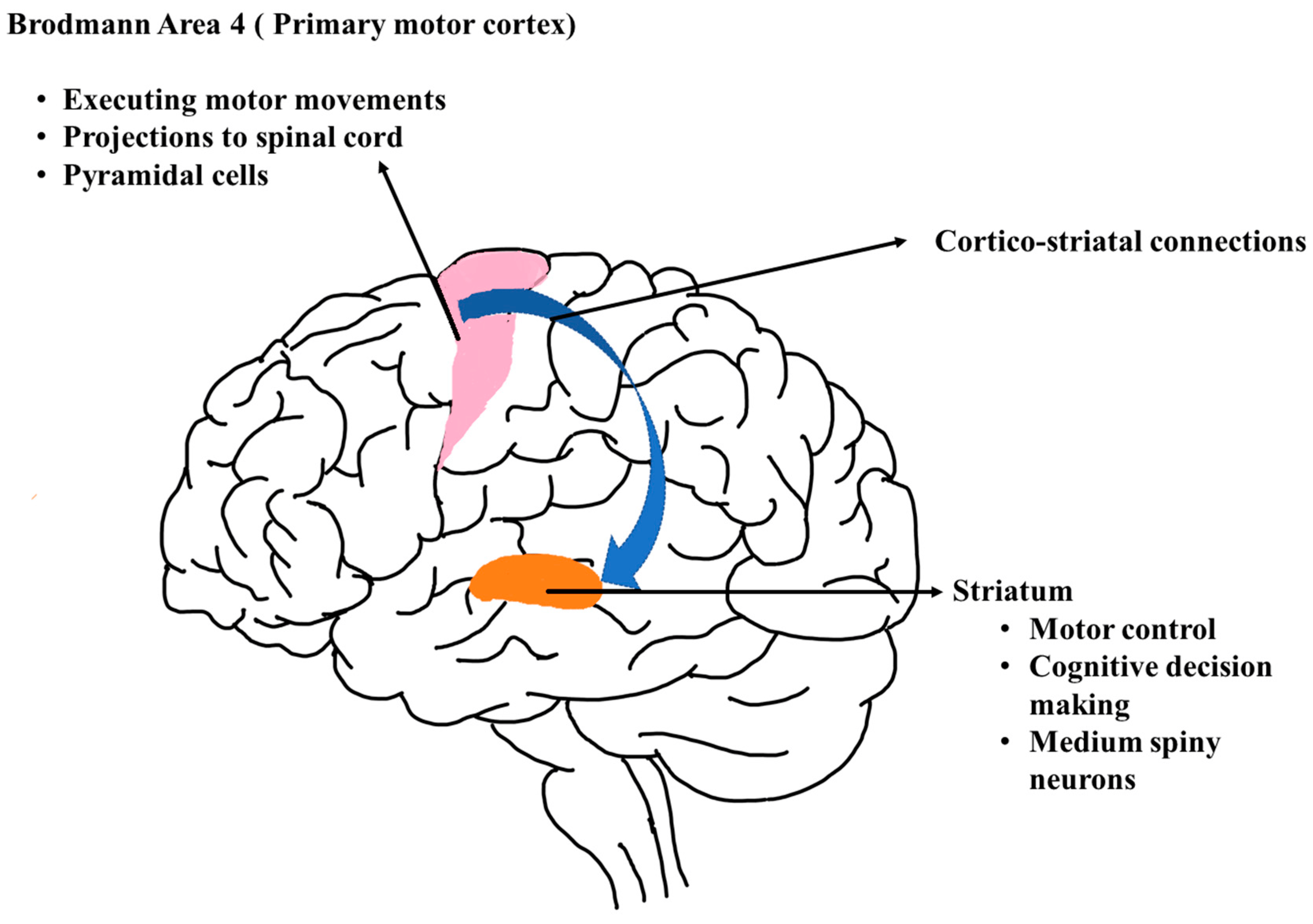
Key facts
- Huntington’s disease is an inherited condition that affects the nervous system.
- Huntington’s disease is caused by a faulty gene that someone is born with.
- The most identifiable physical symptom is called chorea — rapid, involuntary movements of the fingers, limbs or facial muscles.
- Other cognitive and emotional symptoms include impulsiveness and difficulty communicating.
- There is currently no cure or effective treatment for Huntington’s disease.
What is Huntington’s disease?
Huntington’s disease is an inherited condition that affects the nervous system. Although Huntington’s disease can occur at any age, symptoms often do not appear until your 40s or 50s.
Huntington’s disease is progressive, meaning it worsens over time. While there is no cure, treatment can ease symptoms and support is available.
What are the symptoms of Huntington’s disease?
Huntington’s disease can affect a person’s brain and body. Most people start experiencing symptoms as young adults or in middle age. However, some people may develop symptoms earlier, even before 20 years of age.
Physical symptoms
The most identifiable physical symptom is called chorea. This refers to rapid, involuntary movements of the fingers, limbs or facial muscles. It can progress from mild movements to severe thrashing as the disease worsens. Other symptoms include:
- stiffness
- loss of fine motor coordination, causing difficulties in activities such as writing
- changes in balance and co-ordination
- loss of control of bodily functions such as swallowing and speaking
- fatigue
In the later stages of the disease, someone with Huntington’s disease may develop difficulty swallowing. This can lead to weight loss and a risk of choking. They are also at increased risk of falls and may develop incontinence.
Cognitive (thinking) changes
Cognitive symptoms are harder to notice, as they mainly affect the way you think. Symptoms may include:
- difficulty concentrating
- impaired thinking, planning and organisation
- reduced short-term memory
- being impulsive or disinhibited
- fixating on certain thoughts, ideas or feelings (known as perseveration)
- difficulty communicating (especially with speaking or finding specific words)
- difficulty learning new things
Emotional changes
Mental health issues (such as anxiety, depression, mood swings and psychosis) can affect people with Huntington’s disease. Some symptoms include:
- personality changes
- loss of drive and initiative
- impulsiveness
- obsessive-compulsive behaviour
- irritability and aggression
- loss of empathy
- changes in personal hygiene
What causes Huntington’s disease?
Huntington’s disease is caused by a faulty gene you are born with. A person only needs to inherit the gene from one parent to be affected by Huntington’s disease. If you have the gene, there is a 1 in 2 chance that you will pass it on to your child.
If a child does not inherit the gene, they will not develop Huntington’s disease or pass it on to their own children or grandchildren.
Huntington’s disease results in the death of brain cells. The parts of the brain affected are the frontal lobe and basal ganglia. These are responsible for movement, thinking, personality and emotions.

When should I see my doctor?
If you have a blood relative who has been diagnosed with Huntington’s disease, you can have a gene test to see if you carry the gene.
How is Huntington’s disease diagnosed?
If there is a chance you have Huntington’s disease, your doctor will discuss your family history and check for any signs or symptoms of the disease. They may order an MRI or CT scan to look at your brain, but these may not be very useful in the early stages.
Other tests may include:
- neurological tests to check the activity and health of your nerves
- psychological tests to assess your mental health
- neuropsychological tests to assess your memory, language and reasoning
Genetic testing, which is done with a blood test, can confirm a diagnosis.
How is Huntington’s disease managed?
There is currently no cure or effective treatment for Huntington’s disease. It is usually managed by a team that includes a doctor, neurologist, psychiatrist, dietitian, social worker and palliative care specialist.
Management options may include:
- physiotherapy, occupational therapy and speech therapy
- medicines to relieve changes in mood
- medicines to help with jerky movements and difficulty swallowing
- financial support through Centrelink
- respite care at home or in a residential facility
A person with Huntington’s disease may need assisted accommodation when they start to struggle with daily activities and self-care.
The best way for someone with Huntington’s disease to keep well is by keeping physically and mentally active. You can also maintain your mental health through mindfulness or meditation.
Many people with Huntington’s disease find it helpful to plan for the future. This may include financial, legal and care arrangements. Planning can give people with Huntington’s disease a sense of empowerment, and talking openly with loved ones about the future can be a relief.
Sometimes people with Huntington’s disease do not notice their symptoms progressing. It can also be difficult for family and carers to understand what is happening. Support services are also available to help carers.
Can Huntington’s disease be prevented?
If you carry the gene for Huntington’s disease and are planning a pregnancy, talk to your doctor or a genetic counsellor about prenatal genetic testing or pre-implantation genetic diagnosis.
It is best to have genetic counselling before considering a pregnancy, so you understand all your options and their implications.
